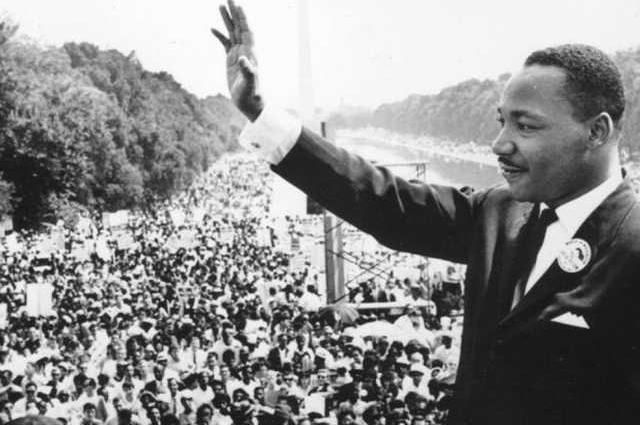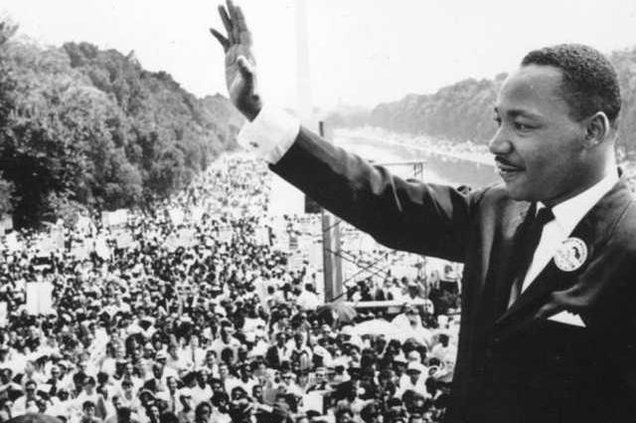Donald Singleton remembers exactly where he was 50 years ago today when he heard that Dr. Martin Luther King Jr. had been assassinated.
“I was riding in a car with some buddies at Fort Bragg, North Carolina, when we heard it on the radio,” he said. “We went back to the base and they told us to report to the barracks, then put us on lockdown.”
The following day, his unit was sent to Washington, D.C., to provide riot control.
“I had just gotten back from Viet Nam in February of 1968,” Singleton added. “I’m over there fighting the enemy, and two months later I’m fighting my brothers and sisters.”
The Bryan County native said he recalls flying into DC on a C-130 and seeing nothing but smoke.
“A lot of cities were on fire,” he said. “We had tanks in the streets and live ammo in our weapons. I don’t remember if we were given permission to shoot, but we were given permission to protect ourselves. Nobody wanted us around.”
As a 16-year-old student at the original George Washington Carver School in Bryan Neck, Singleton said he and a friend heard King and Jesse Jackson were going to be in Savannah. They skipped school and hitch hiked there.
“We showed up at the old Hilton Hotel, there was a whole group of us outside, and the people in the hotel opened up the windows and started throwing beer cans and pop bottles down at us,” he said. “The police showed up and we were the ones who got arrested.”
Singleton said he spent seven days in jail in Savannah, then had to hitchhike back to Richmond Hill.
“He was a great man,” Singleton said of King. “He wasn’t just for black people, he was for everyone. Civil rights are for all.”
Others the Bryan County News spoke with felt the same.
“Dr. King fought for equality and justice for all people because that’s what everyone deserves,” said Alethia Houston-Ferrell. “It’s still a fight for everyone, but he laid the foundation for us.”
Houston-Ferrell, whose late husband William was white, said their marriage was a testament to what King stood for.
“It’s not about the color of a person’s skin, it’s about their true character,” she said, echoing King’s “I Have a Dream” speech. “We were raised not to see color. Racism is something that’s taught. No one is born hating anyone.”
Daniel Boyd, pastor at Emmanuel Christian Church, said he finds strength in King.
“He was a tremendous example of servant leadership,” he said. “He was traveling all over the country with the civil rights movement, but on Sunday he was always back on the pulpit tending his flock.”
Boyd, who is also president of the newly revamped NAACP chapter in Bryan County, noted that he is especially excited that the Richmond Hill City Council recently approved the first annual MLK Day parade, slated for Jan. 19, 2019.
“It really speaks to the spirit of our city and our city leadership,” he said.
The event was spearheaded by Craig and Sharon Butts of Unity in the Community.
“It was really a case of the perfect storm,” Craig Butts said. “The city was very open to our discussions. I think a lot of people have wanted this for a long time, but didn’t know how to ask for it.”
The group is hoping for a large turnout and support from both the business and faith communities.
“It’s an opportunity for all people of faith to come together,” Sharon Butts said. “As Dr. King noted, Sunday morning is the most segregated hour in America and that’s still true today.”
The parade, to be followed by a day of activities in J.F. Gregory Park, is a way to carry on King’s message and expose a new generation to it.
Mario Mincey, a long-time teacher and coach at Bryan County Middle School and Bryan County High School, agreed.
“His legacy is very important. The steps he took to change things for the better was groundbreaking,” he said. “His vision makes it possible for us to experience great moments together today. I think our youth understands the importance of Martin Luther King, but do not realize all of the sacrifices he and others had to make.”

